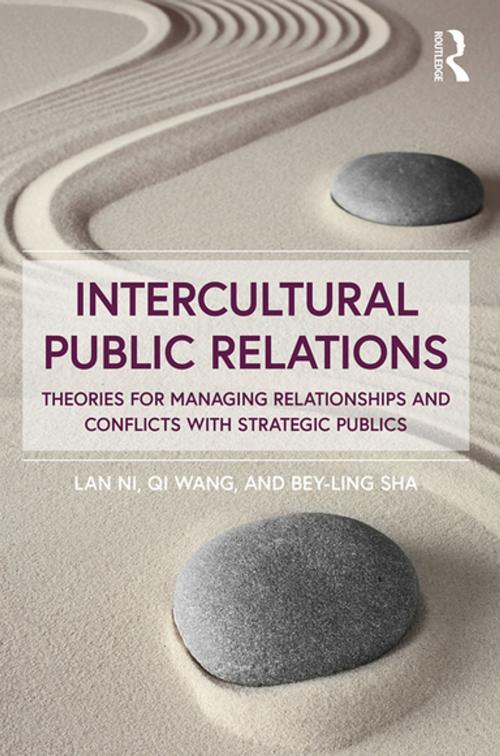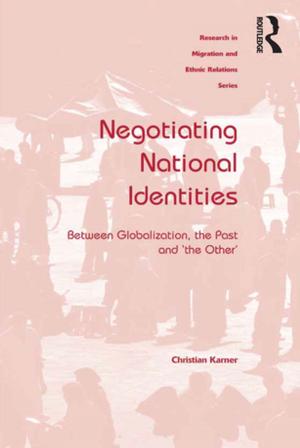Intercultural Public Relations
Theories for Managing Relationships and Conflicts with Strategic Publics
Nonfiction, Reference & Language, Language Arts, Communication| Author: | Lan Ni, Qi Wang, Bey-Ling Sha | ISBN: | 9781317280897 |
| Publisher: | Taylor and Francis | Publication: | June 12, 2018 |
| Imprint: | Routledge | Language: | English |
| Author: | Lan Ni, Qi Wang, Bey-Ling Sha |
| ISBN: | 9781317280897 |
| Publisher: | Taylor and Francis |
| Publication: | June 12, 2018 |
| Imprint: | Routledge |
| Language: | English |
Intercultural Public Relations: Theories for Managing Relationships and Conflicts with Strategic Publics develops a coherent framework to unify the theories of public relations and intercultural communication, and within the framework, examines empirical studies of intercultural interactions.
This book follows an intercultural approach, which considers how individuals and entities with dissimilar cultural identities interact and negotiate to solve problems and reach mutually satisfying outcomes. This work provides a theory-driven, empirically supported framework it provides will inform and guide the research and practices of intercultural public relations. Furthermore, it provides numerous levels of analysis and incorporates the use and challenges of social media.
The book examines theories and issues in three integrated processes:
-
Identification of publics
Relationship management
Conflict resolution
These areas represent the most critical functions that public relations contributes to organizational effectiveness: scanning the environment, identifying strategic publics, and building long-term, quality relationships with these publics to reduce costs, gain support, and empower the publics themselves. In doing so, the book adopts simultaneously public-centered and organization-centered perspectives. This unique work will serve as an essential reference for students, practitioners, and scholars in today’s global public relations environment.
Intercultural Public Relations: Theories for Managing Relationships and Conflicts with Strategic Publics develops a coherent framework to unify the theories of public relations and intercultural communication, and within the framework, examines empirical studies of intercultural interactions.
This book follows an intercultural approach, which considers how individuals and entities with dissimilar cultural identities interact and negotiate to solve problems and reach mutually satisfying outcomes. This work provides a theory-driven, empirically supported framework it provides will inform and guide the research and practices of intercultural public relations. Furthermore, it provides numerous levels of analysis and incorporates the use and challenges of social media.
The book examines theories and issues in three integrated processes:
-
Identification of publics
Relationship management
Conflict resolution
These areas represent the most critical functions that public relations contributes to organizational effectiveness: scanning the environment, identifying strategic publics, and building long-term, quality relationships with these publics to reduce costs, gain support, and empower the publics themselves. In doing so, the book adopts simultaneously public-centered and organization-centered perspectives. This unique work will serve as an essential reference for students, practitioners, and scholars in today’s global public relations environment.















